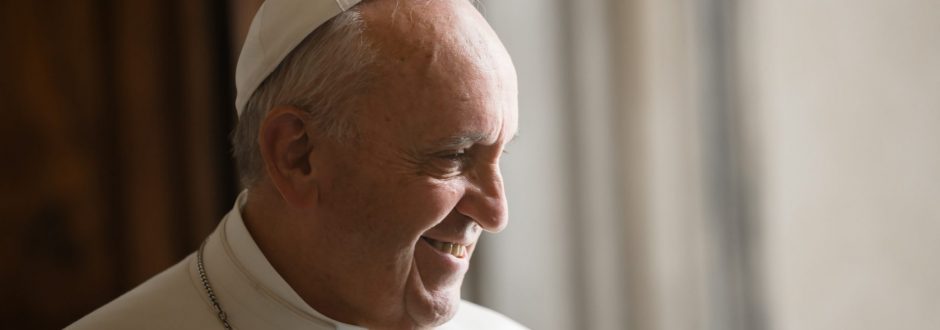In launching a global consultation process for the synod on synodality, Pope Francis calls all Catholics to “look others in the eye and listen to what they have to say”, writes Good Samaritan Sister Clare Condon.
In the past months, synodality has become the catchphrase or as one might say the buzzword across the Catholic Church. It is Pope Francis’ solution to repairing a declining and troubled church. Yes, a synod on synodality, that is his quest! What is this process and has it the potential to reform and revitalise an ailing institution? There are many questions to answer.
Books are being written at a rapid pace, seminars held, virtual gatherings across the universal Church; all endeavouring to understand what the Pope is hoping will evolve. Every Catholic is invited individually or in groups and communities to submit their ideas, their hopes around three key words: participation, communion and mission. The synod organisers will process the key issues that emerge for this universal event, a synodal gathering in 2023.
Pope Francis has outlined his understanding of synodality in the book Let us Dream – The Path to a Better Future. He says that it is time to see, time to choose and time to act, and that synodality is about walking together on the journey under the guidance of the Holy Spirit.
However, his vision is not simply about everyone having a say. He has his well-founded ideas about where the guidance of the Spirit can be found. So what does he see?
Francis suggests we best see from the margins! It is there that the Spirit speaks.
This is a critical comment for understanding synodality and discernment, because many of us Church adherents are now far from the margins and are actually in a place of privilege, so we may not see as he suggests.
Does this mean then that we distort the call of the Spirit and the Gospel message? He states that some realities militate against his kind of seeing from the edge, which can hinder the walking together, the listening and discernment. He names these as narcissism, discouragement, indifference and pessimism, holding on to something we are afraid to let go of, and ideology, i.e. creating our own prism through which we judge everything. He also emphasises that integral ecology is at the margins and the earth is pleading for our response.
So to truly engage in the discernment required of synodality, we need to attend to our own experiential, psychological and spiritual blocks. Pope Francis invites all to “throw away the ideological blanket” that corrupts our thinking, to free our hearts and minds from rigid structures, but also from the other end of the spectrum, to be freed from indifference.
Synodality demands that we have eyes wide open and hearts and minds attuned.
He brings a new and powerful dimension to the practice of synodality, recognising that it is the call and role of all the baptised to be engaged through the sensus fidei within the life of the Church. In baptism we all share in the kingly, prophetic and priestly life of Christ. This is an incredible challenge for Catholics worldwide, as we live in such diverse cultures, geographical settings, levels of economic security, faith and social experiences.
However, there are some common realities emerging worldwide. Pope Francis has himself clearly named some issues as belonging to the Synodal process. Here I name just a few of them. He decries clericalism, pomposity and privilege. How are these aberrations to be overcome? He challenges a Church locked in its own internal problems and teachings that do not speak to humanity in this 21st Century. Teachings of the Church need to take into account scientific developments and the improvements in psychological and sociological understandings.
The Church must return to the essence of the Gospel message of Jesus Christ.
The question for many Australian Catholics is how the current Plenary Council will relate to the 2023 synod. Is there any synchronicity? Can the efforts of more than 17,000 submissions to the Plenary Council have any bearing on the future of the Church, both here in Australia and universally? What is the hope for change or is it a futile exercise? How do we rely on the work of the Spirit, so that the Church can be revitalised and renewed from within?
We believe that God’s spirit is alive and active. It is incisive. It is not divided on itself, but is a source of unity and renewal. The challenge remains for all members of the Australian Plenary Council to listen deeply to the call of the Gospel expressed through one another to discern this Spirit of unity and peace and create a future synodal Church.
